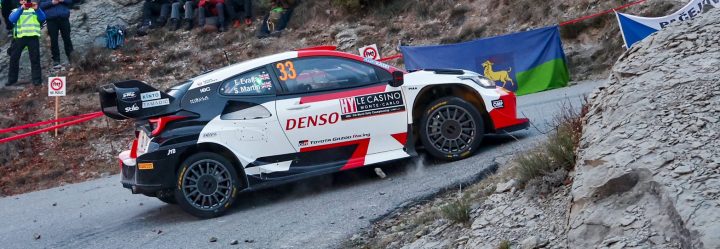Toyota Gazoo Racing World Rally Team started the 2023 FIA World Rally Championship with a one-two finish on Rallye Monte-Carlo as Sébastien Ogier claimed a record ninth victory on the event ahead of team-mate Kalle Rovanperä.
Mostly dry weather made this year’s rally – the opening round of the 2023 World Rally Championship – more a test of outright performance than usual. Ogier (below) set the pace from the start with five straight stage wins as he opened up a lead of half a minute by Friday lunchtime.
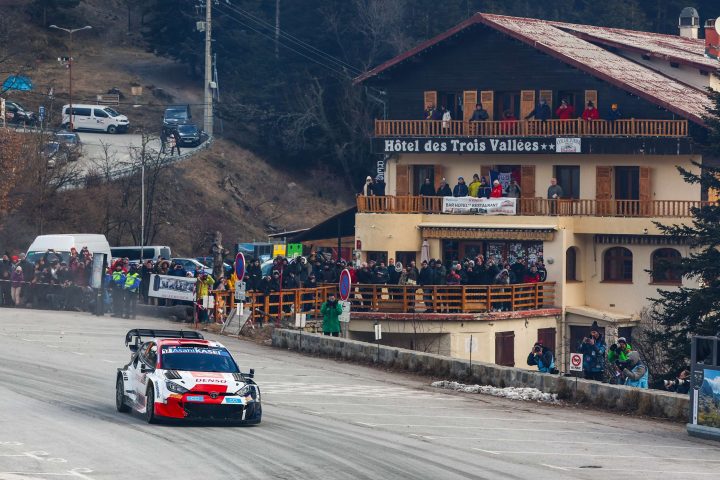
The GR Yaris Rally1 Hybrid was fastest in the first 11 stages of the season, its streak only ending on Saturday afternoon – by which point Ogier was focused on managing his lead.
He carried an advantage of 16 seconds over Rovanperä into the final day and proceeded to claim his eighth and ninth stage wins of the weekend, finishing with a winning margin of 18.8s.
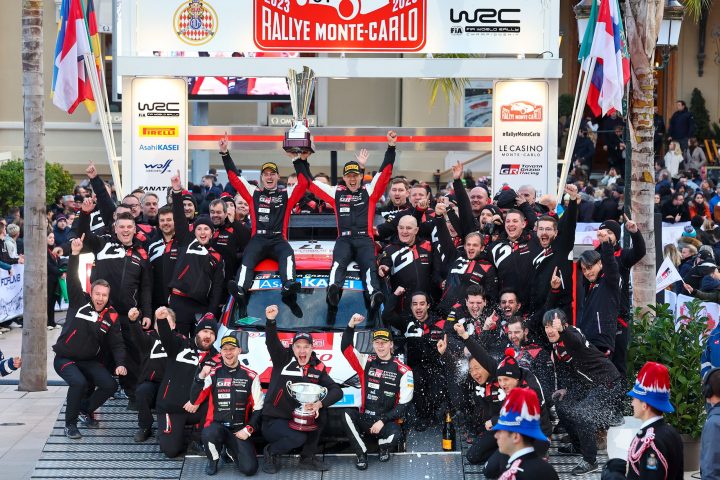
Ogier’s 56th WRC win is also the first for his French co-driver Vincent Landais, in only the second event since the pair began working together at the end of last season.
It is also Toyota’s fifth Monte win with a fifth different model of car: the GR YARIS Rally1 Hybrid won all but two of the 18 stages across the weekend.
With Ogier only contesting selected events this season, second place plus victory in the rally-ending Power Stage is an ideal start to Rovanperä and co-driver Jonne Halttunen’s defence of their championship titles.
Rovanperä grew in confidence and speed during the rally, taking six stage wins in total on his way to a first Rallye Monte-Carlo podium.
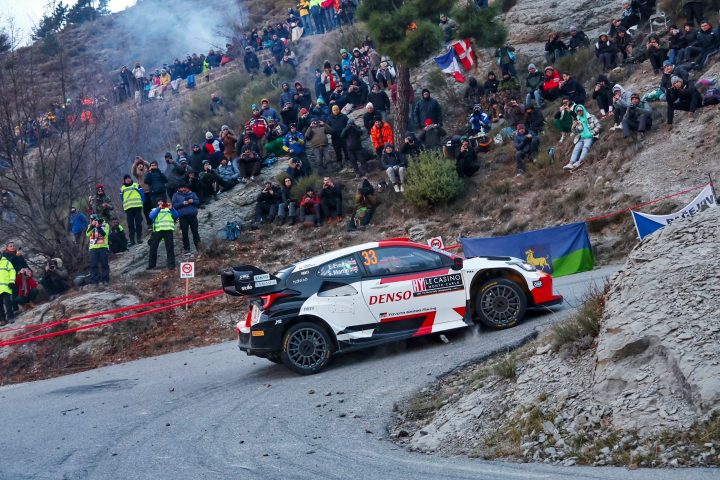
Welshman Elfyn Evans (above) displayed similarly strong pace to his team-mates throughout the weekend and was second to Ogier before losing around 40s with a damaged tyre in SS5 on Friday morning.
He and co-driver Scott Martin fought back to finish fourth, 27.8s from the podium, despite a brief spin on Sunday morning. He was also third in the Power Stage, earning three bonus points.
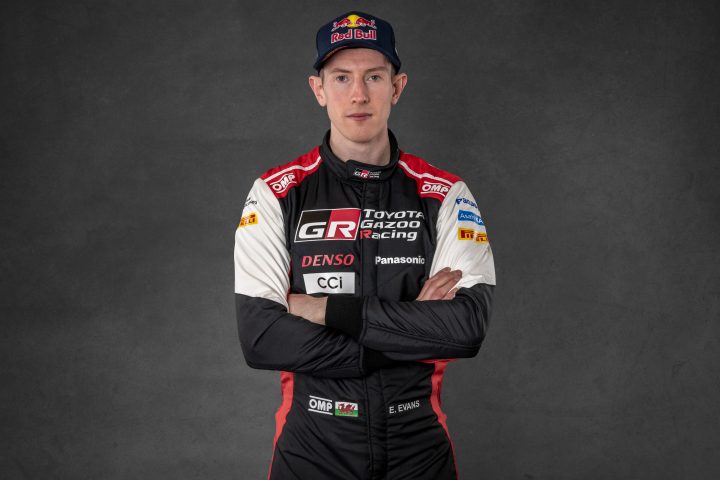
Elfyn Evans said, “Overall the weekend has been a positive one for us. It’s been a pretty good one in terms of pace and we probably had the potential to achieve a bit more.
“Some frustration on Friday put us out of contention for the podium but that’s rallying and the way it goes sometimes. After that, fourth was probably the best we could have done and the gap to third was just a bit too big.
“Still, it’s solid points to start the season and a decent performance. The car was working really well; the team have been working hard and it shows in the overall result here.”
TGR’s strong start to the season was completed by Takamoto Katsuta in his WRC Challenge Program-supported entry. He produced his strongest Rallye Monte-Carlo performance to date alongside co-driver Aaron Johnston, frequently joining his team-mates in the top-four on stage times and finishing sixth overall.
Rallye Monte-Carlo was also the occasion for holding the WRC’s first Innovation Forum, discussing how advanced technical developments can be flowed down to everyday motoring.
Improving sustainable mobility will require a multi-faceted approach – with a transfer of technology from the motorsport sector essential in achieving this.
The Honorable Mr. Ababu Namwamba – Cabinet Secretary for Youth Affairs, Sports and the Arts, Republic of Kenya – spoke of a need for a cocktail of solutions – not just in the motoring sector but also in the wider spectrum.
He referenced Kenya’s extensive tree-planting project which also featured at Safari Rally Kenya in 2022, adding that the nation’s energy production is over 80 per cent renewable.
Speaking as part of the first panel, Patrice Ratti – Former President of Renault Sports Cars and Member of the Automobile Club Monaco’s Board of Directors – was full of praise of the forum.
“This is a great idea to have this type of event where people from the industry, people from motorsports and journalists can talk about the big issues from tomorrow and talk about what motorsport can be used for – to develop the cars of the future,” he said.
He also stressed the importance of hedging future development across multiple technologies, referencing renewable fuels, as used in WRC today, as well as hydrogen and electricity.
“Motorsport has always played a big role in developing future technologies, today even more than before. It is very important – as is, I think, the strategy from the FIA to have different technologies in different championships.
“In WRC you have hybrid and renewable fuels. I think that is very good because we are going to see in real conditions how these fuels and technologies will perform. I think that, overall, it is a great strategy.
“Nobody can say what will be the technology of the future and my bet is we will need several technologies,” added Ratti.
Echoing the words of Ratti was Toyota Gazoo Racing team principal Jari-Matti Latvala, who said: “The Toyota philosophy is to transfer what we learn in motorsport. Here [in rallying] we push the cars to the extreme. If they survive here, they should survive everyday usage.”
Since the beginning of 2022, all cars in the FIA World Rally Championship have been running exclusively on renewable fuel provided by P1 Racing Fuels.
CEO Martin Popilka revealed at the forum that a fleet of German governmental vehicles will now use the very same fuel researched and developed in the WRC for everyday driving in Berlin, with his company targeting wider availability throughout the German market.

